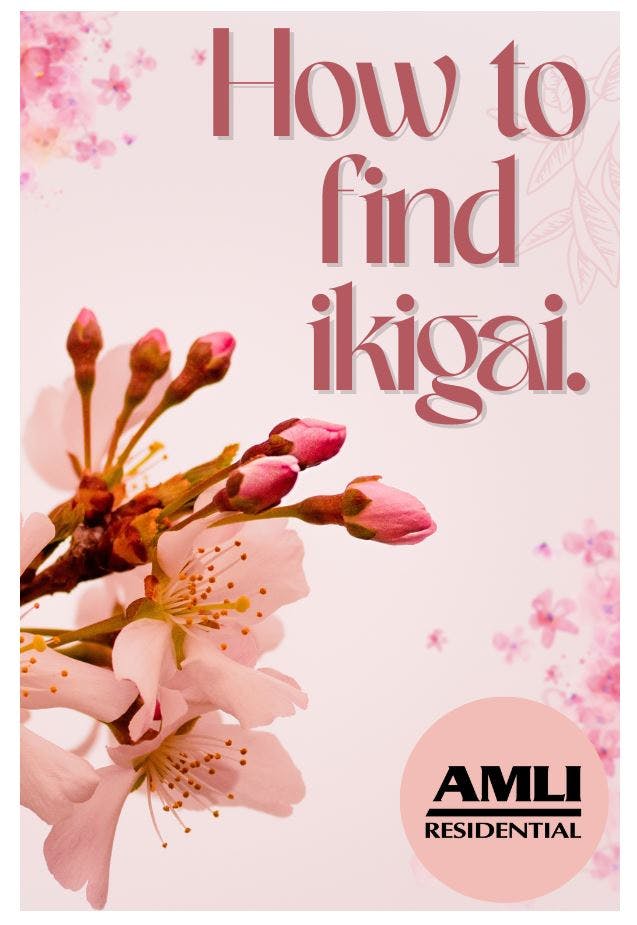The term Ikigai (ee-key-guy) was introduced in Japan during the Heian period, between 794 and 1185. Loosely translated, it combines the words, “iki” meaning “life” and “gai” meaning worth or value. The short definition of ikigai can be described as having a sense of purpose in life. The long definition is a bit more complicated. To some Japanese people, ikigai is considered one of the most honorable things one can pursue. It is about who you want to become and devoting yourself to pursing things you enjoy that bring you feelings of accomplishment and fulfillment. It also includes becoming aware of the purpose of life and the meaning of existence.
How to find ikigai
Ikigai plays a major role in the way many Japanese people live. Some people believe it is the reason for their happiness and longevity. In fact, the people of Okinawa, a Japanese island south of the mainland, have the highest proportion of people over 100 years old in the world.
It is also worth mentioning that ikigai, as practiced in Japan, involves the pursuit of meaningful goals. This pursuit is a lifelong journey requiring persistence, effort and self-reflection that ultimately yields a sense of purpose that makes life worth living.
It comes as no surprise that this philosophy is becoming more and more prevalent with people today.
Westernized version of ikigai
With that said, there is also a Westernized version of ikigai that is more focused on finding your dream career. While this version is most decidedly not ikigai, it can be quite helpful in finding the crossroads of what you love, what you are good at, what the world needs and what you can get paid for. It can help you discover the intersection of your passion, values and potential. You can start by answering some questions in the four areas below
You love it
Make a list of all the things you love to do. It can be anything that makes you feel good. It will be the thing that you love to tell other people about. It is the thing that once you are immersed in it, hours go by like minutes. If you are not sure what you love, ask yourself some questions.
If you currently have a job, are there aspects of your work that you are totally absorbed in? What do you love about what you do? If you do not work, do you have hobbies that you can’t seem to get enough of? What kinds of things are you emotionally connected to? What did you love as a child or young adult?
The list of things that you love should be a rather simple, such as writing, baking, collecting things, organizing, whatever comes to mind as something that you truly enjoy.
You are good at it
Now make a list of everything that you are good at. Are there things that you excel at easily or have a natural ability to do? Something that seems effortless for you. Or is there something that you are willing to learn? It may be something that people compliment you on, such as a particular hobby or craft. It might be a topic where people ask your advice.
It can be a skill that you learned at work such as accounting or maintenance. It can be something that you have done for years such as public speaking or marketing. This is truly a list of the raw skills that you possess and that you excel in.
The world needs it
The next component focuses on what your community or the world needs. Finding a way to connect what we love and do with what is needed by others is crucial. If you are working, is your work considered to be in high demand? Are you solving social or environmental problems? If you have a hobby or a craft, is it valuable in the marketplace? Does it solve some sort of problem for the world?
When we know that the work we do has value and can change the lives of others, it can help you get closer to finding your purpose and value in life.
You can get paid for it
While true ikigai is not geared at professional success, the Westernized formula involves determining what you can get paid for. It is about deciding the path to a career that brings you fulfillment but also supports your daily needs and expenses. It is about doing something you love and getting paid to do it.
To figure out if what you do can be monetized, ask yourself if there are other people getting paid for the same work that you are doing. Is there a healthy level of competition for your work? Have other people made a career out of the same hobby or craft that you enjoy doing?
Putting it all together
After you have compiled the lists of what you love, what you are good at, what the world needs and what you can get paid for, see if you can make any connections between the lists. Use an ikigai diagram to see if areas overlap onto one another. There are many toolkits and worksheets for ikigai as well. Maybe you are already doing something that you love but can now see a connection with how you can also serve your community. Maybe there is something that you are good at that you could get paid to do.
Spend some time brainstorming your different options based on the information you have gathered. Try visualizing your ideal day. Imagine what you would do and how you would feel if you could do something that you truly loved.
The idea is to focus on finding your center. The place where what you love, what you can do and what is needed, converge. Spend some time studying what you think you would like to do based on the picture you have in your head. Maybe you will need to take a class or find a mentor in an area you think you might like to pursue. Experiment by looking into different roles to see if they meet your real-life expectations.
Be patient
It may take a while to discover what speaks to you but do not give up. Find ways to volunteer, dabble in crafts and job shadow until you find what you love. Finding your dream career does not mean that you will find the perfect job where you never have a bad day, it just means that you will be doing something that is aligned with what you love, what you are good at and what is needed.
Finding ikigai is helpful regardless of the discipline you choose. Ikigai in the most traditional Japanese form will yield your best actualized self. It is a personal and private journey toward accomplishment, fulfillment and awareness of self. Westernized ikigai is not ikigai at all, but it can help you clarify your life purpose and empower you to make changes in your career to bring about life satisfaction and the joy of doing something that is valuable to you.
Pin it!



 View All Posts by Barb Bauer
View All Posts by Barb Bauer